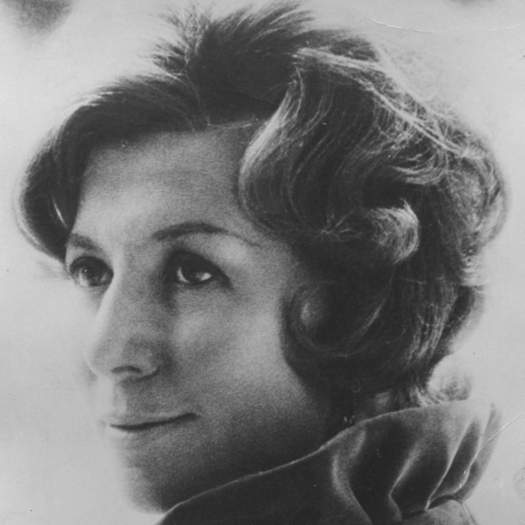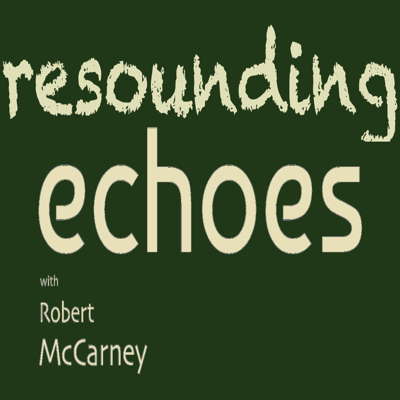- Dame Moura Lympany
- Adam Pounds
- Marion Stein
- Anne Boyd
- Simon Lindley
- Arizona
- Aleppo
- Bacewicz: Symphony No 2
Jacques Offenbach
German/French composer Jacques Offenbach was born Jacob Offenbach in Cologne on 20 June 1819 into a Jewish musical family. His father, Isaac Juda Offenbach, played violin in cafés, worked as a cantor in synagogoes, taught flute, guitar, singing and violin, and also composed music.
Jacob learnt to play violin from the age of six, from his father, began composing within a couple of years, and began playing the cello at the age of nine, with lessons from Bernhard Breuer. With one of his brothers and one of his sisters, he formed a trio which played operatic arrangements and dance music in cafés, inns and dance halls.
Along with his elder brother Julius, he was taken to Paris to study at the Paris Conservatoire, and at this time he adopted the name Jacques. He became bored with academic study, left the Conservatoire after a year, and began working as a cellist, regularly losing pay for playing pranks during performances.
He studied composition and orchestration privately with Fromental Halévy, who realised that Jacques was going to become a great composer. He wanted to write for the stage, but had to wait, composing music initally for Paris salons, and touring France and Germany. In order to get married he converted to Roman Catholicism.
In 1849 he was appointed musical director of the Comédie Française, and composed incidental music and songs for eleven dramas in the early 1850s, but still couldn't break into composing operatic music - three one-act operettas were staged, but the Comédie Française remained uninterested in them.
Eventually, after some encouragement from composer, impressario and singer Hervé at the Folies-Nouvelles, Offenbach decided to present his own operatic works at his own theatre in Paris, choosing the tiny Salle Lacaze, which was next to the site of the 1855 Great Exhibition, and calling it the Théâtre des Bouffes-Parisiens. Licensing laws restricted him to small casts, so he presented evenings consisting of several one-act works. There were several successes that summer, and in 1858 the French government lifted the restrictions on number of performers, so Offenbach was able to move towards presenting larger works. Orpheus in the Underworld, Offenbach's most popular work, was first presented later that year.
He went on to have his most successful decade in the 1860s, with many successful productions, and was granted French citizenship by Napoleon III. His works began to be taken up by larger theatres, and he wrote many of the operettas for which he is chiefly remembered - La belle Hélène, La Vie parisienne, La Grande-Duchesse de Gérolstein and La Périchole. Towards the end of the decade his style began to shift from satire towards romance.
When the Franco-Prussian War broke out in 1870, Offenbach's music, associated with the old regime, lost influence in Paris, but found favour in England, with fifteen of his works being performed at the Gaiety Theatre between 1870 and 1872. He was also successful in Vienna, and toured the USA in 1876.
During his last years, he tried to complete a successful serious opera. He had been working on The Tales of Hoffmann since 1877, and was hoping to be present at the first performance, but this was not to be. At his death in Paris, aged sixty-one, on 5 October 1880, certified as being from heart failure caused by gaut, he left the vocal score mostly complete, and had started on the orchestration. He was given a state funeral.
A family friend, Ernest Guiraud, assisted by Offenbach's son Auguste, completed the orchestration, and Les contes d'Hoffmann was first performed the following year, at the Opéra-Comique in Paris and then in Vienna.
A selection of articles about Jacques Offenbach
Spotlight. Virtuosic Flair - Gerald Fenech recommends dance music played by Daniel Hope and the Zurich Chamber Orchestra. 'Daniel Hope's fiddle-playing is just phenomenal ...'
CD Spotlight. Subliminal Pedagogy - John Dante Prevedini listens to Thomas Quasthoff singing Schubert, Mahler and J S Bach at Verbier. 'Taken within the context of Verbier, this album documents just as effectively his gift for pedagogical modeling as it does his vocal virtuosity.'
Ensemble. A Triumph - Roderic Dunnett listens to two one-act operas
Ensemble. A Fun Evening - Mike Wheeler listens to a pre-Christmas programme from Derby Concert Orchestra
Ensemble. Three Divas - Maria Nockin reviews a streamed recital from Versailles, given by Ailyn Pérez, Nadine Sierra, Isabel Leonard, Vlad Iftinca and Pablo Sáinz-Villegas
Ensemble. Appreciation of Nature - Maria Nockin reviews a 'Met Stars' online concert from the Spanish Riding School in Vienna, featuring Anna Netrebko, Elena Maximova and Pavel Nebolsin
CD Spotlight. Supremely Pianistic - Gerald Fenech finds pure joy in Etsuko Hirose's recent Moszkowski piano works disc. 'Truly hair-raising stuff, wonderfully annotated and recorded.'
CD Spotlight. A Precious Recording - Giuseppe Pennisi listens to Offenbach's 'Maître Péronilla'. '... this is a book and two CDs to enjoy and to make an elegant gift.'
Light and Shade - George Colerick writes about idealised beauty alongside the grotesque in the 1951 film 'The Tales of Hoffmann'
Ensemble. Orpheus in Limbo - Giuseppe Pennisi reports on Offenbach's 'Orpheus in the Underworld' at the Salzburg Festival
CD Spotlight. A Quintessentially French Bestiary - French songs by various composers, heard by Gerald Fenech. 'Ducks, peacocks, pigs, butterflies, dromedaries, carp, cicadas and owls are just some of the creatures in the menagerie assembled for this recording.'
Ensemble. High Jinks - Roderic Dunnett enjoys Opera Warwick's production of Offenbach's 'La vie Parisienne'
CD Spotlight. Beautifully Realized - Richard Harwood's EMI debut, heard by the late Howard Smith. 'Harwood never once strives for effect ...'
Ensemble. Highly Promising Talent - Katie Gilbert, Esther Beard and Edward Leung at Derby Cathedral, heard by Mike Wheeler
Ensemble. A Whirlwind of Slapstick - French Carnival Operettas in Venice, reviewed by Giuseppe Pennisi
Ensemble. A Bit Too Long - Derby Concert Orchestra's Christmas Concert, reviewed by Mike Wheeler
Ensemble. A Jubilant Celebration - Rachmaninov, Shostakovich, Offenbach and Tchaikovsky from Sheku Kanneh-Mason, Mirga Grazinyte-Tyla and the City of Birmingham Symphony Orchestra, enjoyed by Mike Wheeler
CD Spotlight. Uniquely Peculiar - French music for brass and piano, heard by Gerald Fenech. 'Careful attention to the music's slightest details means the interpretive aspect is consistently special and charismatic.'
Ensemble. Lots of Tinsel - Derby Concert Orchestra's Christmas concert, reviewed by Mike Wheeler
Ensemble. Echo of Globalization - France at the Festival of Nations, reviewed by Giuseppe Pennisi
Ensemble. Vivid Performances - Derby Concert Orchestra's Christmas concert, reviewed by Mike Wheeler
Ensemble. A Real Joy - 'Le Ventre de Paris', praised by Giuseppe Pennisi
Ensemble. A Wonderful Performance - Offenbach's 'The Tales of Hoffmann', live in HD from New York, impresses Maria Nockin
Ensemble. Unmistakably French - Offenbach's The Tales of Hoffmann, reviewed by Giuseppe Pennisi
Profile. Love Comes Stealing In - George Colerick remembers Wolfgang Ostberg (1939-2011)
Ensemble. Pure Entertainment - Roderic Dunnett visits Garsington Opera at Wormsley
Ensemble. An Interesting Idea - Opera North's 'From Paris with Love', reviewed by Mike Wheeler
Ensemble. Unlucky in Love - Giuseppe Pennisi visits Pisa for The Tales of Hoffmann
Ensemble. Exhilarating Music - Verdi, Rossini, Offenbach, Mozart and Theodore Morrison at Santa Fe Opera, enjoyed by Maria Nockin
Ensemble. A Popular Success - Some harsh criticism from Gregory Moomjy on Offenbach's 'La Périchole' at New York City Opera
Ensemble. Innovative Dramaturgy - Giuseppe Pennisi visits the annual Munich Opera Festival
Ensemble. The Stuff of Dreams - 'The Tales of Hoffmann' from The Met in HD, enjoyed by Maria Nockin
CD Spotlight. A Fine Collection - Operatic bass arias sung by William Powers, heard by Paul Sarcich. '... a formidable mixture of operatic styles ...'
Ensemble. Severity and Comedy - Offenbach's 'Tales of Hoffmann', commended by Gregory Moomjy
CD Spotlight. Diversely Exhilarating - Cheryl Barker pays tribute to Joan Hammond, heard by Howard Smith. '... four recital items have the ideal accompanist in Timothy Young ...'
CD Spotlight. Lyrical Richness - Arensky Piano Trios, heard by Robert Anderson. 'The Rachmaninov Trio Moscow plays with obvious affection for the music and enviable skill.'
Ensemble. Lively and Fluent - 'Orpheus in the Underworld' at London's Royal College of Music, reviewed by Robert Hugill
Ensemble. Truly Fascinating - A Santa Fe Opera digest, including the recent Kaye Edition of 'The Tales of Hoffmann', by Maria Nockin
Ensemble. Much Praise - 'Orpheus in the Underworld' from Kentish Opera, reviewed by Pippa Hare
Ensemble. A Sizzling Rendition - 'Carmen' from Phoenix Opera impresses Maria Nockin
Ensemble. Buoyant and Fresh - André Messager's 'Véronique' delights Mike Wheeler
Ensemble. Stylish and Enjoyable - 'Bluebeard' at Grange Park Opera, experienced by Robert Hugill
DVD Spotlight. Weird Love Tales - Offenbach's 'The Tales of Hoffmann', reviewed by Robert Anderson. '... a cast, orchestra, conductor and stage team fully up to tackling a very demanding project.'
Profile. The Hungarian Nightingale - A meeting with Gisela Doráti, better known as 'Gizi', by Bill Newman
Ensemble. Wonderfully stylish - Offenbach in Paris, appreciated by Robert Hugill
Record box. Glittering light - The music of Irish composer Raymond Deane, by Keith Bramich
CD Spotlight. Un-buttoned Beecham - 'The Tales of Hoffmann' in a vintage performance enjoyed by Peter Dale. 'The recording is remarkably warm, surface noise minimal, characterisation lively, and orchestral playing spot on.'



